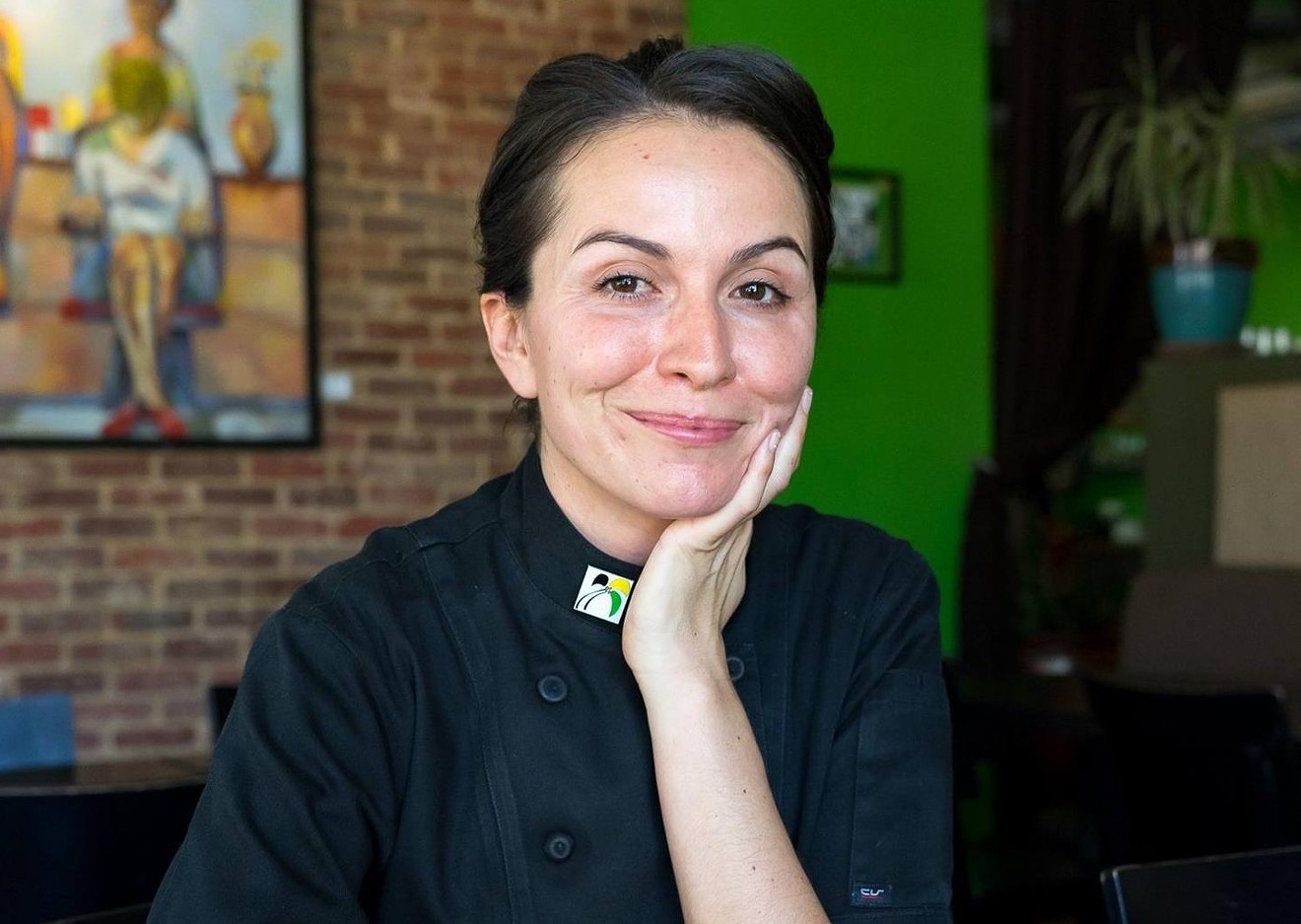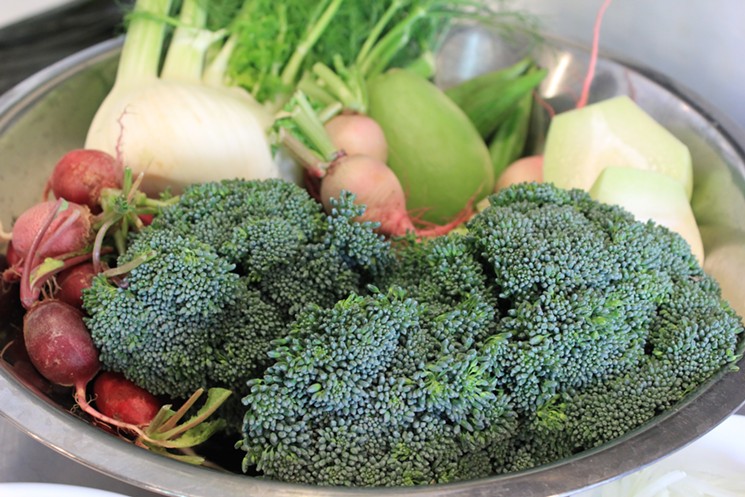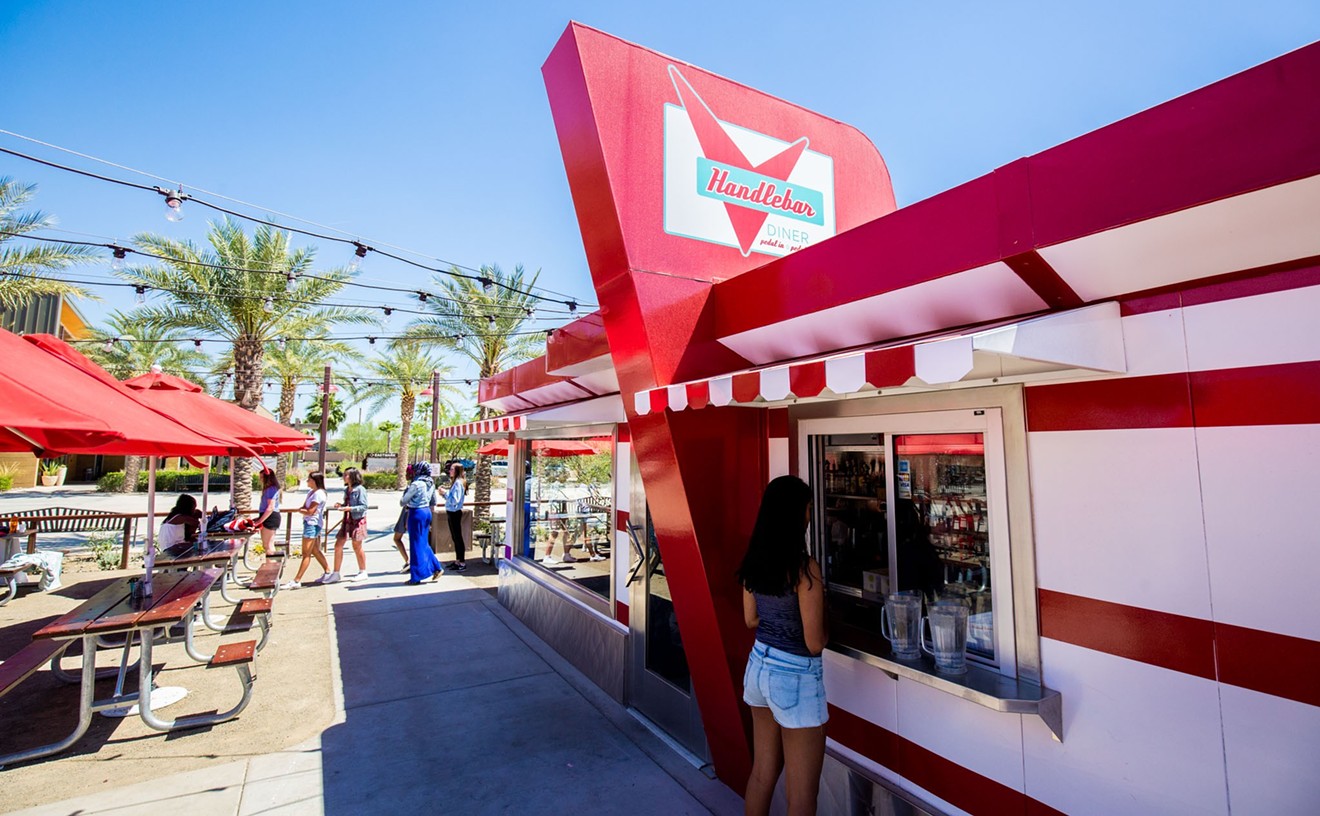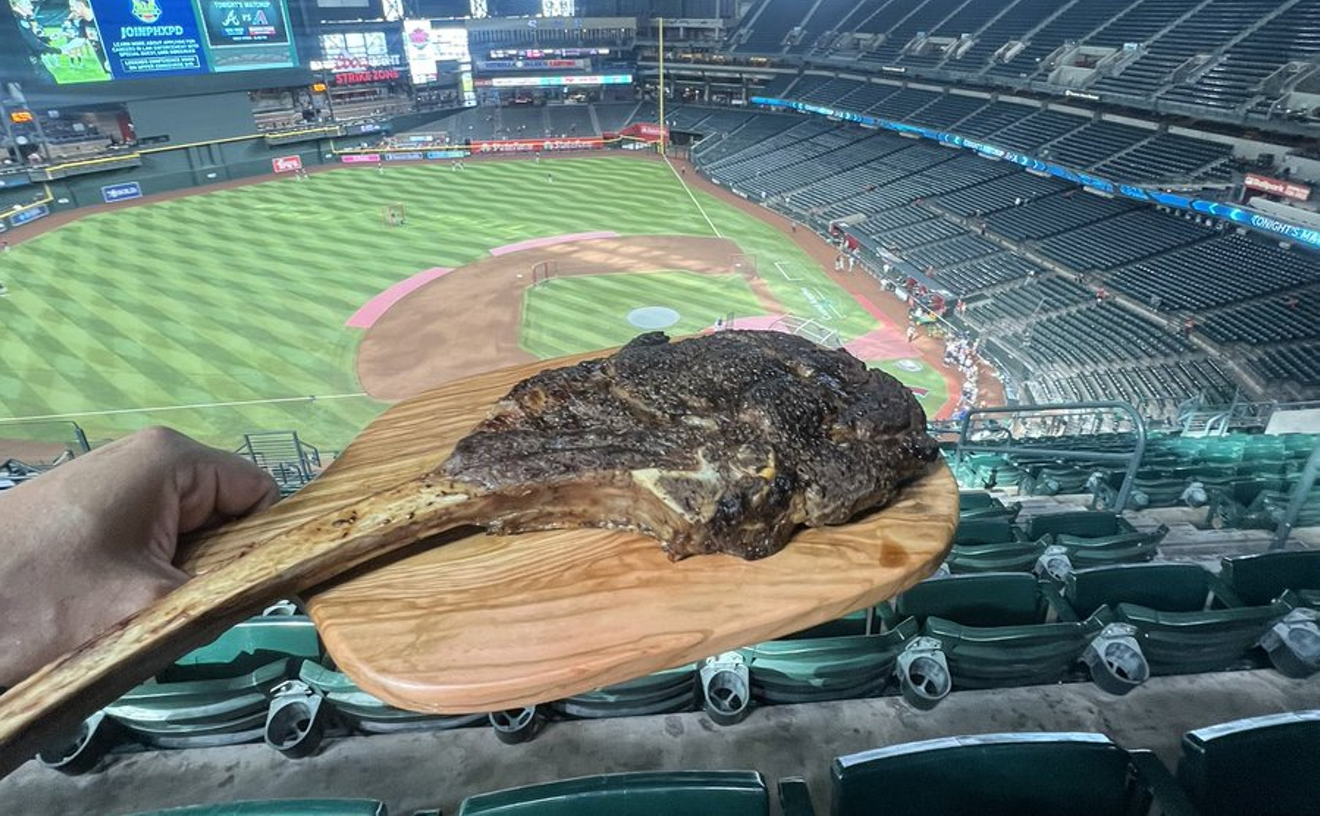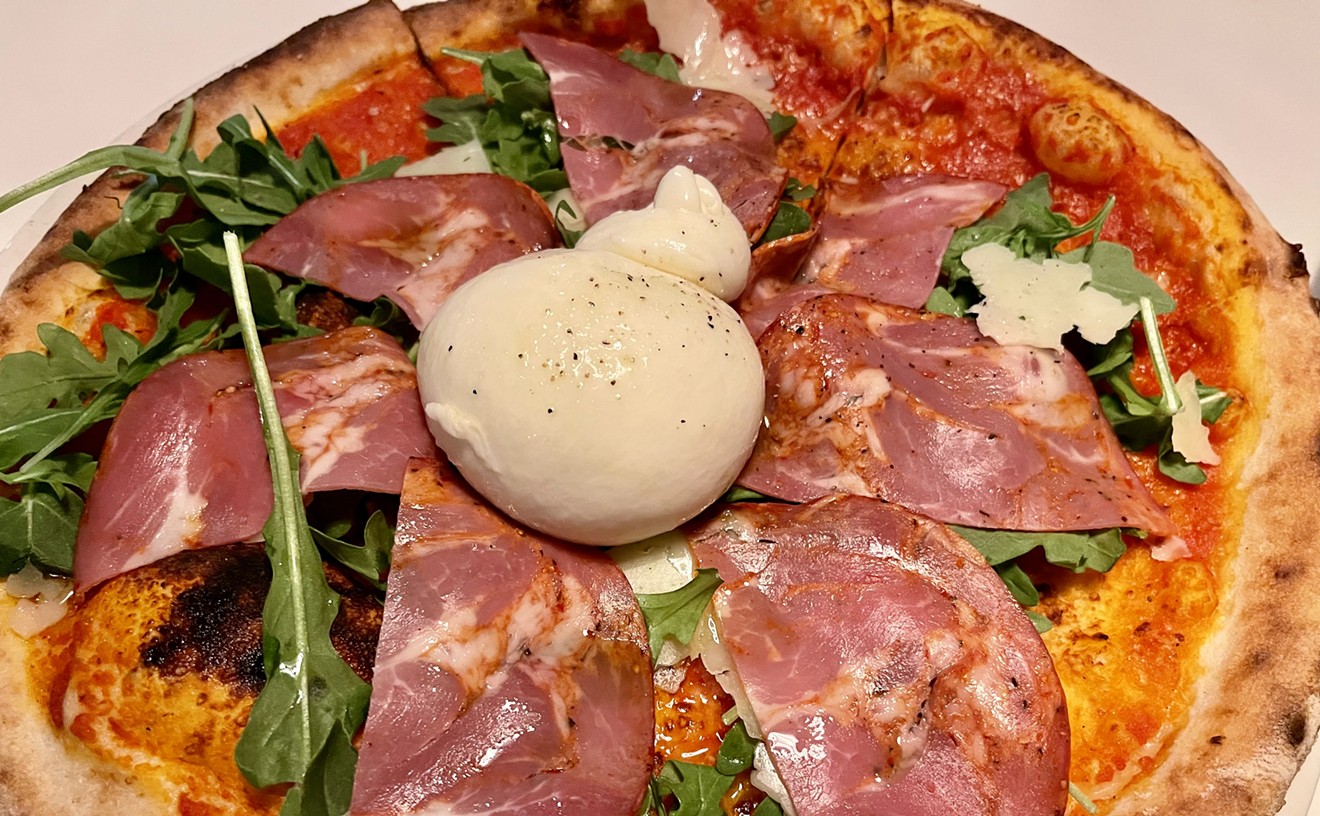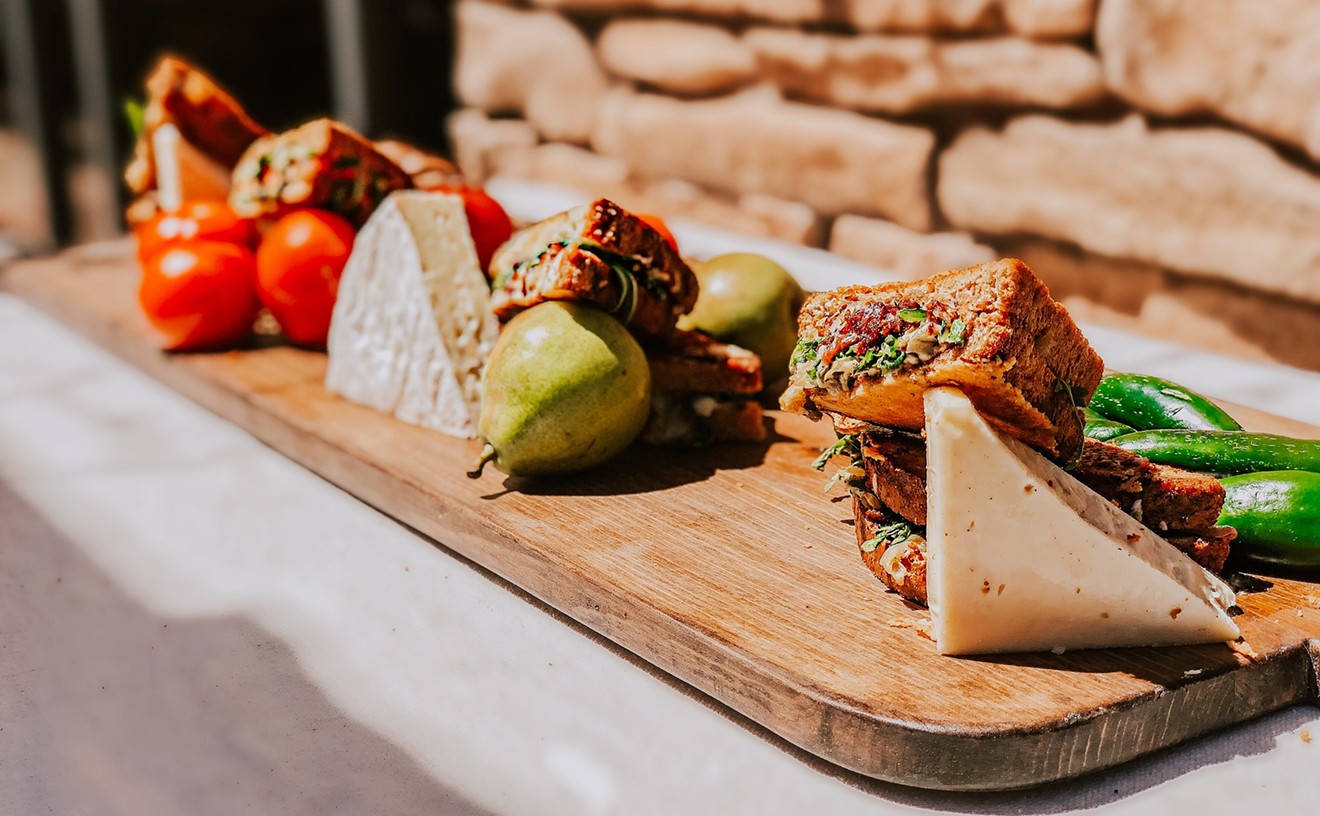Full transparency, I interviewed Danielle Leoni, co-owner and chef of The Breadfruit & Rum Bar, on February 24. Devour Culinary Classic had just wrapped, and she was two days away from earning a nomination for Best Chef, Southwest from the James Beard Foundation. She is a pillar of sustainable restauranting, which is why I was there. We stood in the dining room — actually, the rum bar — as staff whizzed by prepping for that night’s dinner service, talking excitedly.
This conversation feels like a lifetime ago.
Since, The Breadfruit & Rum Bar has shuttered. That staff has been laid off. Leoni has given a moving interview on KJZZ’s The Show. And in pure Leoni fashion, she’s already penned an open letter to Governor Doug Ducey and started the Arizona Small Restaurant Coalition.
We know why this happened. The coronavirus took hold. It went from a news topic to a new reality, quickly. And while it has majorly affected The Breadfruit & Rum Bar today, it never came up back in February.
However, that’s not to say the topic of our conversation isn’t still important. It may be more important, given the run on the grocery stores and how we’re probably cooking at home more than ever. It was about reducing food waste in her kitchen and yours, and how some combatants may be better cooking skills and understanding the lifetime of a single piece of food.
Before you roll your eyes: 1. Notice I never used the word “journey,” and 2. Use them instead to read Leoni’s impassioned sentiments about how respecting food can also mean respecting yourself.
It Begins With Shopping
“Food waste starts with knowing why we’re buying something,” Leoni says.When ordering for a restaurant, or shopping for your own groceries, she wants you to ask yourself: Am I actually going to use all this food? “Or the better question is, which part of this don’t I have a plan for?” she says.
And who is she to lecture about food waste?
Leoni is a prime example of what it looks like to run a responsible, sustainable restaurant. It would take an Ace Ventura-like inhale to list all her accomplishments. She holds an Executive Master of Sustainability Leadership from ASU, and the James Beard Foundation made her a 2018 Women's Entrepreneurial Leadership Program fellow and awarded her a "Seafood Sustainability Seal.” She’s also a member of the Monterey Bay Aquarium’s Seafood Watch Blue-Ribbon Task Force, just to drop a few.
So yeah, things get used in their entirety with Leoni.
Example: Every piece of a fish will see a pot in her kitchen. Her philosophy is, if you buy a whole fish or a whole pig, you have to know what you’re going to do with it from nose to tail. Nothing, or very little, will hit the bottom of a trash can.
“We get so busy in our industry just trying to do the basics that we feel like, ‘Oh it’s just a fish tail. Oh, it’s just three ounces of scraps. It’s just. It’s just. It’s just,” she says, knocking on the bar with each just. “Yeah, and at the end of the day, week, month, year, it’s just a lot of food.”
This works for home kitchens, too.
“We buy food because we want to eat it, that’s it,” Leoni says of her personal shopping.
Over-buying is a major contributor to kitchen waste. As a result, produce gets forgotten. But forgotten does not mean unusable. Leoni wants people to stop tossing food because they may be slightly below A-grade.
So, what’s the solution if you did go nuts at Sprouts? The second line of defense may be more creative cooking.
Better Cooking to Reduce Waste
“If you call yourself a chef or culinarian, it means that you're a creative,” she says. “Knowing your food and not wasting it is about truly being a culinarian.”Leoni is big on giving food a second life. It happens all over The Breadfruit and her kitchen at home.
Example: “I had a head of Romanesco in my fridge from two weeks ago,” she says, “I opened up my crisper and thought, “That’s cool, I’ll trim that up.’” The ends were covered in fuzz, but the whole thing was clipped and cooked. It was great, she reports.
“I don’t think our culture has an intimate relationship with food; it’s very transactional, very little understanding about why you should be more engaged in eating,” she says. “Food is a part of our lives, but we don't recognize it for some reason. I don’t know why it gets this second-rate status as a thing that must be dealt with in a way, instead of this thing that brings joy to our lives.”
Because Leoni seems to see food differently, almost sticks up for it. “Perhaps someone else would have opened the crisper and thought, ‘I can’t eat this.’ Whole head of Romanesco. Bam. In the trash.”
Hell, she doesn’t even like the whole ugly food campaign. “It’s not ugly, it’s just different from what you've been sold,” she says. “I like to buy things, personally I don't like to be sold anything.”
Leoni says she’ll pop smoked fish in the freezer if she knows she’s not going to get to it. Old lettuce? She makes lettuce soup. Old tomatoes are the best tomatoes — so juicy and soft — for marinara. If something’s going bad, just make something — chutney, jam, marmalade. Even at the rum bar part of The Breadfruit, fruits are zested, then juiced. Or if fruits are peeled, rum is poured on the rinds to extract the oils in five-gallon pails. “Pour some rum on it for the love of it,” as she puts it.
She keeps fighting for food.
“Think of another way,” Leoni says. “Chop it up, dice it, slice it, put it in a stew, a pasta, toss it in some rice, hash it up, eat it for breakfast — it’s still good food.”
Because it’s not just about wasted food. It connects to self-care, which Leoni, as a former yoga school operator, seems to also worry about — for you. Throw something away, but you’re only hurting yourself.
“You've wasted your time to buy it, the time you took to earn the money that you spent on the food, you’re just throwing your life away,” she says. “We work really hard in our lives to earn our money and work really hard in our lives to earn our free time, so when we throw our food away, we’re throwing both those things away.”
And not even composting will get you off the hook with chef.
Though she’s a client of Recycled City — the citywide food scraps pickup service — she says the very last step is composting. It’s almost the worst thing that could happen to a piece of food, because it still didn’t get eaten.
All Food Has a Story
“You want to have a better relationship with someone or something, you have to get to know it,” Leoni says. “That means you have to tell the story.”Take a grapefruit, she starts. She’s talking my grapefruit; one I’d had the night before. We fixate on an imaginary grapefruit growing on an imaginary tree between us.
“This many hours of labor, this much transpiration time, this much carbon footprint, this is the average amount of time you spent to earn the money to purchase it, and the time you spent to go to the grocery store,” she says, “This is what is in this grapefruit, and you just threw it in the trash. How could you do this?”
It’s a rhetorical question.
“Because you don’t know the story.”
Leoni believes there’d be less food waste if we, as consumers and cooks, understood the story behind the things that we have in our hands, our homes, on our cutting boards.
Sure, Leoni has cooking tips, knows how to purchase food responsibly and manage a kitchen. But like any bad habit, no one’s going to change your habits but yourself. And hopefully, no one is going to toss a piece of food if you consider the trip it took to get to your hand.
“Treating food with honor is not wasting food,” she says, “But it’s also cooking food properly ... and honoring the work all the people put in to giving you that food."

